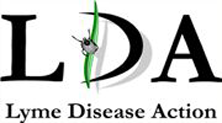The Collaboration for Leadership in Applied Health Research and Care for the South West Peninsula (PenCLAHRC) held a conference in Exeter in November – “New developments in public involvement in research“. LDA submitted an abstract for a presentation and was delighted to be given a slot for a poster presentation.
Drafting of the abstract was back in May at a time when we felt we were on the way to changing the world view of Lyme disease. By the time it got to November not a lot had shifted globally, but the UK had moved forward in leaps and bounds: LDA had been invited to join Public Health England in an open conference and views from across what used to be a divide were aired and shared.
The conference was about public involvement in research. Often patients are consulted – for example about leaflets or sitting on focus groups. True involvement in research means active collaboration – being in at the design stage of a project and helping to decide what is important at every step.
Lyme disease patients in the UK are not only participating in research, but are initiating it. We set up a project to define the uncertainties in diagnosis and treatment of Lyme disease because no-one believed there were any. We did this to very considerable resistance, but we managed it.
This poster tells the story, hints at the difficulties that were encountered along the way and describes the outcome. Download and read the full poster: Patients changing the world view of Lyme disease. (PDF 204KB)
Have we changed the world view of Lyme disease? Not yet, but this small island is at least managing to break down the barriers between government agencies and patient groups. That’s not to say there are not pockets of resistance left – places where doctors still believe that we know how to diagnose and treat Lyme disease – but we are getting there.
There are signs that Europe is moving ahead as The Netherlands has held a joint study with both patients and doctors participating and in Norway, Gerd Marit Berge of the Norwegian patient association NLBF is speaking at a conference with the Norwegian Network of Tick Research in 2014.

 Printer Friendly
Printer Friendly